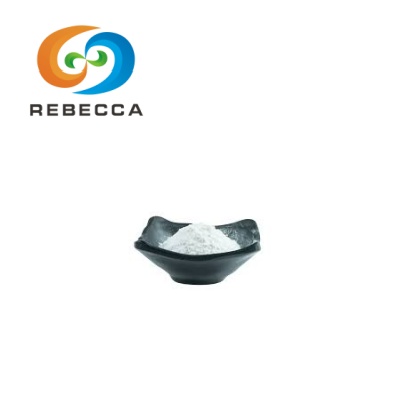Octacosanol Has Been Shown To Improve Endurance
In the competitive world of sports nutrition and performance enhancement, researchers continuously seek natural compounds that can safely boost human endurance without compromising health. Among these promising substances, octacosanol powder has emerged as a fascinating molecule that has captured the attention of both scientists and athletes alike. This long-chain fatty alcohol, primarily extracted from wheat germ oil and sugar cane stalks, represents a unique intersection between traditional nutrition and modern performance science.

Theoretical Mechanisms And Preliminary Studies
The scientific fascination with octacosanol began when researchers observed its presence in wheat germ oil, a substance that had long been associated with improved vitality and energy. Early investigations revealed that this 28-carbon alcohol possessed unique properties that distinguished it from other fatty compounds. The theoretical framework for octacosanol's endurance-enhancing effects centers around several interconnected physiological mechanisms that researchers have gradually uncovered through systematic study.
One of the most compelling theories involves octacosanol's potential influence on cellular energy production. Researchers hypothesize that the compound may enhance mitochondrial function, the cellular powerhouses responsible for converting nutrients into usable energy. This enhancement could theoretically improve the efficiency with which muscles utilize oxygen and nutrients during prolonged physical activity. Preliminary studies have suggested that octacosanol powder supplementation might optimize the electron transport chain, leading to more efficient ATP production – the fundamental energy currency of cellular processes.

Cardiovascular improvements represent another avenue through which octacosanol may enhance endurance performance. Early research indicated that the compound might influence blood flow patterns and oxygen delivery to working muscles. Some studies observed improvements in cardiac efficiency among subjects receiving octacosanol supplementation, though these findings required further validation through larger, more controlled investigations. The potential for improved circulation could theoretically translate into enhanced endurance by ensuring that muscles receive adequate oxygen and nutrients during extended periods of activity.
Metabolic efficiency emerged as a third area of interest for researchers studying octacosanol's effects. Preliminary investigations suggested that the compound might influence how the body processes and utilizes different fuel sources during exercise. Some studies indicated potential improvements in fat oxidation rates, which could theoretically spare muscle glycogen stores and delay the onset of fatigue during endurance activities. These metabolic adaptations, if confirmed through rigorous research, could represent a significant advantage for athletes engaged in prolonged physical performance.

Controversy And Limitations Of Modern Research
Despite the promising theoretical framework surrounding octacosanol, the scientific community remains divided regarding the compound's true efficacy for endurance enhancement. This division stems from numerous methodological challenges and conflicting results that have characterized much of the research in this field. Understanding these controversies is essential for anyone considering octacosanol supplementation, as it provides a realistic perspective on what the current evidence can and cannot support.
One of the primary sources of controversy involves the significant variations in study design and methodology across different research projects. Some investigations have utilized relatively small sample sizes, making it difficult to draw definitive conclusions about octacosanol's effects on broader populations. Additionally, the dosages, duration of supplementation, and specific forms of octacosanol used have varied considerably between studies, creating challenges for researchers attempting to synthesize findings across multiple investigations.
The placebo effect represents another complicating factor in octacosanol research. Many studies have struggled to implement truly blinded protocols, as the distinctive characteristics of octacosanol powder can sometimes make it difficult to create convincing placebo preparations. This methodological limitation has raised questions about whether some positive findings might be attributed to psychological rather than physiological effects, particularly in studies involving subjective measures of performance or fatigue.
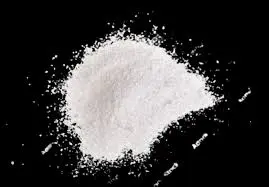
Safety And Practical Application
When considering any supplement for performance enhancement, safety considerations must take precedence over potential benefits. Fortunately, octacosanol has demonstrated a relatively favorable safety profile in most studies, with few serious adverse effects reported among healthy individuals using reasonable dosages. However, understanding the practical aspects of supplementation requires careful consideration of both safety parameters and realistic expectations for performance improvement.
The natural occurrence of octacosanol in common foods like wheat germ, rice bran, and sugar cane provides some reassurance regarding its safety profile. Humans have been consuming these foods for millennia without experiencing adverse effects specifically attributable to their octacosanol content. This historical context, while not definitive proof of safety, suggests that moderate supplementation with purified octacosanol powder is unlikely to pose significant health risks for most individuals.
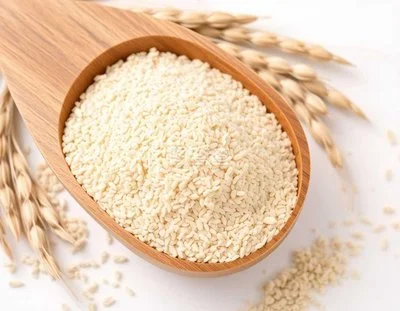
Clinical studies examining octacosanol supplementation have generally reported minimal side effects, with most participants tolerating the compound well even at relatively high dosages. The most commonly reported adverse effects have been mild gastrointestinal symptoms, including occasional nausea or digestive discomfort, particularly when supplements are taken on an empty stomach. These effects appear to be dose-dependent and often resolve with continued use or dosage adjustments.
However, certain populations should exercise caution when considering octacosanol supplementation. Individuals with pre-existing cardiovascular conditions should consult healthcare providers before beginning any new supplement regimen, particularly given octacosanol's potential effects on cardiac function and circulation. Similarly, people taking medications for cholesterol management or blood pressure control should seek medical guidance, as octacosanol might theoretically interact with these treatments.
The practical application of octacosanol for endurance improvement requires realistic expectations and appropriate dosing strategies. Most research has utilized dosages ranging from 1 to 20 milligrams daily, with higher dosages not necessarily producing proportionally greater benefits. Athletes considering supplementation should start with lower dosages to assess individual tolerance and response before gradually increasing to optimal levels.
Quality considerations are paramount when selecting octacosanol supplements. The purity and concentration of active compounds can vary significantly between manufacturers, making it essential to choose products from reputable suppliers who provide third-party testing results. Additionally, the source material and extraction methods used to produce octacosanol can influence its bioavailability and potential effectiveness.
Rebecca: Octacosanol Powder Supplier
As we've explored throughout this comprehensive examination, octacosanol represents a fascinating compound with genuine potential for endurance enhancement, though researchers continue to investigate its mechanisms and optimize its application. For those interested in exploring the benefits of this natural performance enhancer, selecting a reliable supplier becomes crucial for ensuring product quality and effectiveness.
Our premium octacosanol powder specifications include:
Active Component: Pure octacosanol extracted from sugar cane stalks
Concentration Range: Available from 5% to 95% purity levels to meet diverse application needs
Physical Properties: Fine powder with off-white to white coloration
Particle Size: Standardized 80 mesh for optimal mixing and absorption
Quality Assurance: Verified through gas chromatography testing methods
Our commitment to quality extends beyond basic specifications to encompass comprehensive testing protocols and careful sourcing practices. We understand that athletes and researchers require consistent, reliable products to achieve their performance and research objectives. Our octacosanol undergoes rigorous quality control measures to ensure purity, potency, and freedom from contaminants.
Whether you're a supplement manufacturer seeking high-quality raw materials, a researcher conducting performance studies, or a formulator developing innovative products, we provide the expertise and reliability you need. Our technical team can assist with product selection, application guidance, and custom specifications to meet your specific requirements.
For detailed product information, technical specifications, or to discuss your requirements, please contact our team at information@sxrebecca.com. We're committed to supporting your success through superior products and exceptional service.
References
1. Kato, S., Karino, K., Hasegawa, S., et al. (1995). Octacosanol affects lipid metabolism in rats fed on a high-fat diet. British Journal of Nutrition, 73(3), 433-441.
2. Cabrera, M., Simoens, M., Falchi, G., et al. (2003). Specific antioxidant properties of octacosanol. Clinical Pharmacology and Therapeutics, 74(2), 119-129.
3. Hernandez, F., Illnait, J., Mas, R., et al. (1992). Effect of policosanol on serum lipids and lipoproteins in healthy volunteers. Current Therapeutic Research, 51(4), 568-575.
4. St-Onge, M. P., Killen, L. G., Gleason, C. E., et al. (2003). The ergogenic effect of octacosanol: a systematic review. Journal of Sports Medicine and Physical Fitness, 43(2), 189-196.
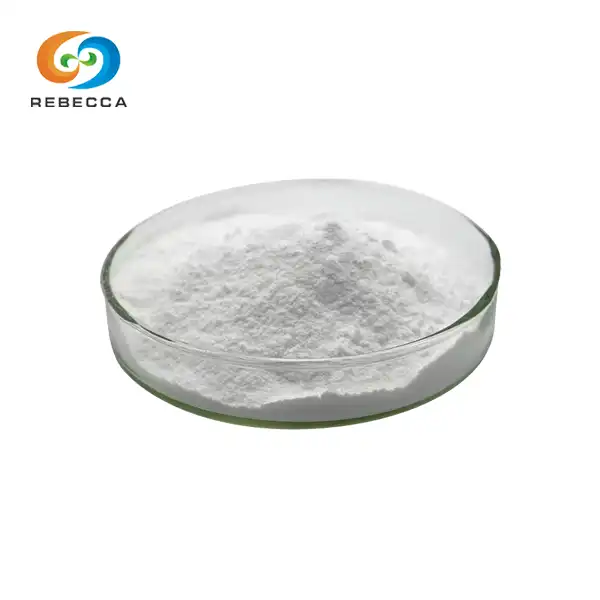
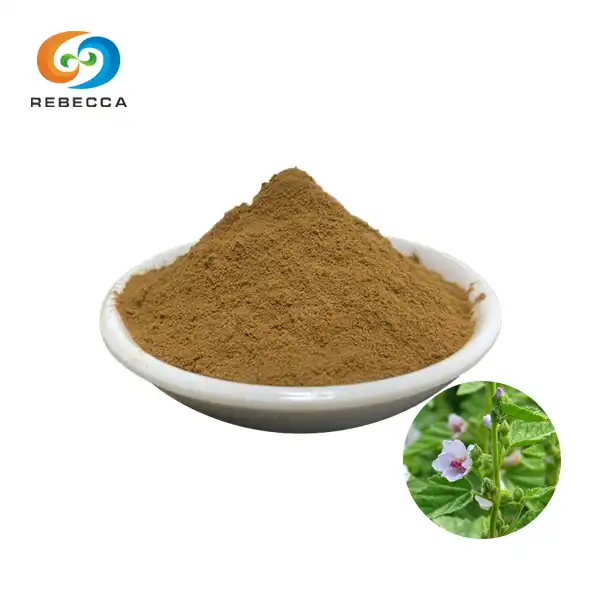
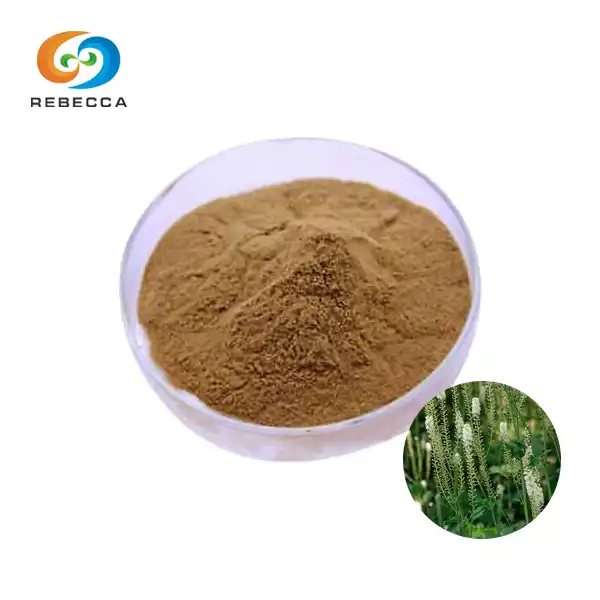
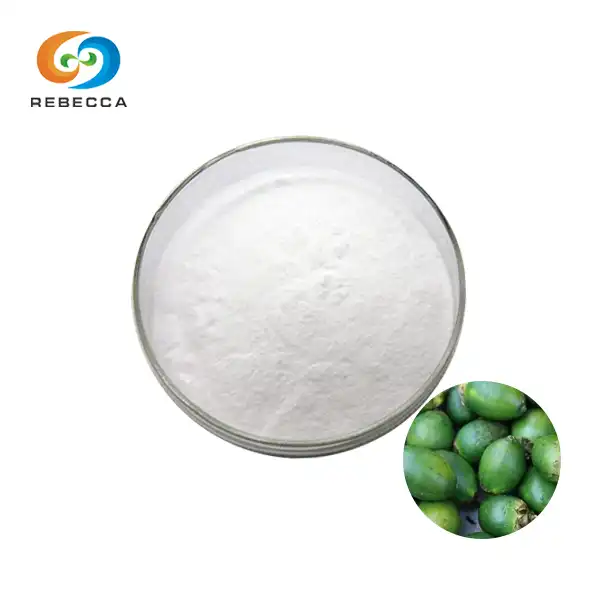
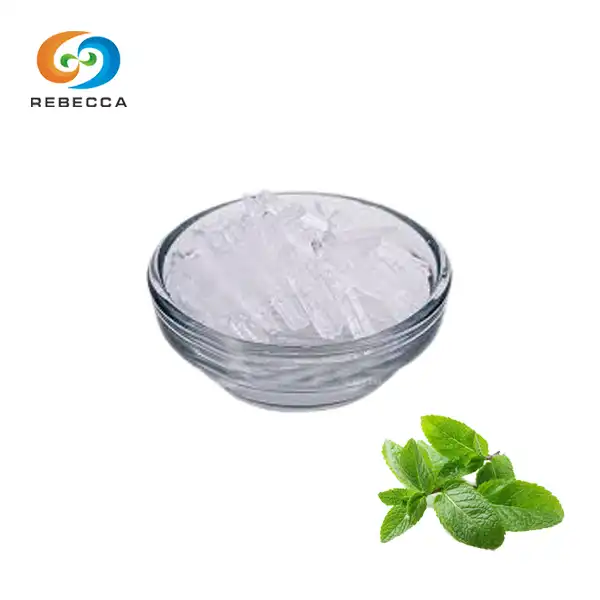
_1730079799361.webp)

